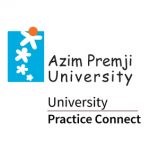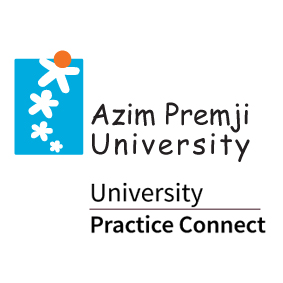Faculty Positions in Chemistry – Azim Premji Foundation

Website apupractconnect Azim Premji Foundation
DEADLINE – Wednesday, 15 December 2021
SPECIALISATIONS -CHEMISTRY
The vision of Azim Premji Foundation is to contribute towards a just, equitable, humane and sustainable society, with a focus on India.
Azim Premji began his systematic philanthropic activities in 2001. Over the past years, he has transferred a significant part of his personal wealth, including the economic ownership of about 74 per cent of Wipro’s shareholding, for philanthropic purposes. He has irrevocably donated and created an endowment currently valued at approximately USD 35 billion (INR 262,000 crores) to fund work (mentioned below). Azim Premji Foundation (‘the Foundation’) continues to have 67 per cent of the economic ownership of Wipro.
The work of the Foundation spans from education to other important areas of equity and human well-being. In education, the Foundation has its own operations. In the other fields, it supports a large number of not-for-profits through multi-year financial grants.
Improving Public School Education – From Grassroots to Policy
- The Foundation works on improving the public school education system in India, with a focus on the more disadvantaged areas of the country. Historically, the focus of the work has been with Grades 1 to 8. The work now extends across grades K to 12.
- The work of the Foundation in this respect is as an ‘operating organisation’, which has built deep expertise in school education over the past years.
- This work began in 2001 and has expanded rapidly since 2011. The work has grown, from 150 people to 1500 people in five years. These people are a team of education professionals and experts living and working in some of the most disadvantaged parts of India. The team is projected to grow to 2500 – 3000 people in the next four to five years.
- At present, on the ground work spans 7 states which have over 350,000 schools.
- The Foundation also works with other state public education systems: deeply with 7 other states in the northeast of India, and many other states and their key institutions. The Foundation collaborates closely with all these state governments.
- The work involves every aspect of school education. For example, it includes the capacity development of teachers, head teachers and functionaries, curricular improvement, text-book development, assessment reform, and education policy.
- In any year the Foundation’s direct engagement is with a few hundred thousand teachers and schools, while it support reaches out to entire state systems.
- The on-the-ground work is done through ‘Field Institutions’ that the Foundation has set up and is expanding. There are at present 48 institutions in the field.
- The Foundation runs 8 schools for the purposes of ‘demonstration and training’, for the use of the public system.
- These institutions are in some of the most disadvantaged districts of India, each staffed with 10- 60 members. The direct coverage of the public-school systems on the ground is further strengthened by around 220 ‘Teacher Learning Centers’, that the Foundation runs, in smaller towns.
- Field Institutions do direct work on the ground. This intensive work is with teachers, head teachers, education functionaries, local public institutions; for example, District Institutes of Education and Training and other relevant stakeholders.
- The Foundation works closely with the central and state governments on matters of policy and curriculum. For example, it has contributed significantly to the development of the National Education Policy 2020, which is formulated for the whole country, after a period of 34 years, with a time horizon of twenty five years in the future.
- This dimension of the Foundation’s extensive work also includes textbook development, assessment reform, institutional reform, education management etc.
Higher Education: Universities
- The Azim Premji University in Bangalore was set up in 2010 by the Foundation. It started offering degree programmes in 2011. Its mandate is to run teaching programmes and conduct research to contribute to the social sector in India, and to be an exemplar higher education institution with inclusion and quality.
- The University and the Field Institutes work as an integrated organisation to contribute to policy, research and continuing education, in order to make a real difference to the practice of school education in India.
- The Foundation is in the process of setting up the second Azim Premji University in Bhopal, modelled on the existing University in Bangalore. A third University is being considered in the northeast of India.
- The Universities’ focus is on education and other domains of human development, for example, livelihoods, governance and policy, public health, and sustainability. At the undergraduate level they offer a broad-based liberal education, across the physical and biological sciences, humanities and social sciences, integrated with interdisciplinary studies in fields of human development that are the overall focus.
- The University is entirely philanthropic in nature. Currently, 90% of the expenditure is borne by the Foundation. In the long term, the endowment is designed to support 80 % of the overall expenditure of the University, with only 20 % coming from programme fees and other income.
- The University offers postgraduate degrees in Education, Development, Public Policy & Governance, Economics and Development, and Law & Development.
- The undergraduate programme offers a rigorous liberal education, with multiple majors across the physical and social sciences, and humanities. There is also an innovative four-year teacher preparation programme (BSc & BEd).
- In addition, there are several continuing education programmes for practising professionals, in relevant areas of education and development. As part of the Continuing Education programme, the University and the Field Institutions have conducted more than 1000 programmes, primarily for government functionaries working in these fields, as well as for teachers.
- The University currently has 850 postgraduate and 500 undergraduate students and 170 faculty. This will go up to 4000 — 5000 students and 400 faculty by 2024 – 25 in Bangalore. The Bhopal campus would be also of a similar size.
- The University offers extensive financial support to its students to ensure that students from economically disadvantaged sections are able to pursue high quality higher education. Currently, over 50 percent students are on scholarships offered by the University. The student body is very diverse, with students from across 26 states and varied socio-economic backgrounds.
- Eight cohorts of about 2300 students from the postgraduate programmes have graduated from the University and have seen almost 100% job offers on campus from a range of organisations. Nearly 90% of these students have chosen to work in the social sector, many in grassroots and field locations across the country. Over 400 students have graduated from the undergraduate programme
- The research programmes of the University are designed for direct contribution to matters of policy and practice, in education and development. As part of this, several large research projects by the University faculty have been completed or are underway, notably the widely recognised and cited research on employment, field studies in education, urban sustainability, and legal reforms. In addition, over 90 external grants have been given to encourage research in the fields of interest.
- Over the next two to three years the University plans to offer programmes (in multiple formats from degrees, diplomas and certificates in environment and health, early childhood education, inclusive education, disability, local democracy, development sector leadership, public health and other specialised areas.
- The University is housed in a 2.6 million square feet campus on 90 acres, in Bangalore. The Bhopal campus will be housed in a 50 acre campus with 1.5 million square feet.
Grant-making: Philanthropic Initiatives
- Started in 2014, Philanthropic Initiatives provides financial support through multi-year grants to not-for-profit organisations (NPOs) that serve the most vulnerable in our society.
- Through such support, people who are deeply disadvantaged and marginalised are offered immediate care, access to essential services, and the possibility of a dignified future.
- These vulnerable groups include the urban homeless, persons with disability, women survivors of violence, adolescent girls at risk, street children, elderly poor, manual scavengers, rag pickers, migrant workers, farmers with marginal landholding, particularly vulnerable tribal groups, and water-deficient communities.
- The Philanthropy also works in collaboration with state governments and groups of NPOs to address some of these issues more systemically. Such collaborations include:
o In Odisha, an effort to improve nutrition and hygiene in pregnant women and young children to reduce child stunting in the state.
o In Andhra Pradesh, improving livelihood of small and marginal farmers through sustainable agricultural practices.
o In Maharashtra, a programme to improve legal-aid access for imprisoned under trials.
o A multi-state programme to strengthen local governance and Panchayati Raj institutions.
o In Andhra Pradesh, an effort to ensure last mile delivery of welfare services across tribal regions of the state.
o A programme covering all the major railway junctions in the country to rescue children who are lost, runaway or trafficked.
o Support setting up of an independent Trust to catalyse public-interest media.
o Philanthropic Initiatives will scale up three to four times in the next two to four years, by deepening work in existing areas, and by adding other carefully chosen areas.
We invite applications for our upcoming BSc in Chemistry and dual degree in science and education, launching in July 2023.
We are looking for applicants who can participate in teaching the undergraduate level and laboratory courses, curriculum development, and student mentoring. You will have the opportunity to design and teach elective courses in their field of expertise and interest.
We support and encourage research by our faculty members, as well as engagement with public and school education in the sciences.
We are looking expertise in Chemistry in the following areas:
- Organic Chemistry: We are looking for experience in synthesis and reaction mechanisms; experience with green chemistry is desirable.
- Inorganic chemistry: We are looking for experience in synthesis, for example of magnetic materials.
- Analytical Chemistry: A strong understanding and experience in spectroscopy is desirable.
Requirements
A PhD in Chemistry, or related fields in the areas of expertise mentioned above. Postdoctoral or teaching experience is desirable.
Strong interests and experience in the following are an added advantage:
- Teaching and pedagogy
- Laboratory work such as designing and creating lab experiments and modules
- Teaching laboratory-based courses
An interest in curriculum design is desirable. Applicants should have a strong interest in liberal undergraduate education.
Application Procedure
Send us an email to facultypositions@apu.edu.in with the following documents. Ensure the subject line is ‘Faculty position applications for Chemistry — 2021’:
- A covering letter indicating the position
- A professional statement of teaching philosophy and research interests (in separate documents)
- Curriculum Vitae
To apply for this job please visit practiceconnect.azimpremjiuniversity.edu.in.


